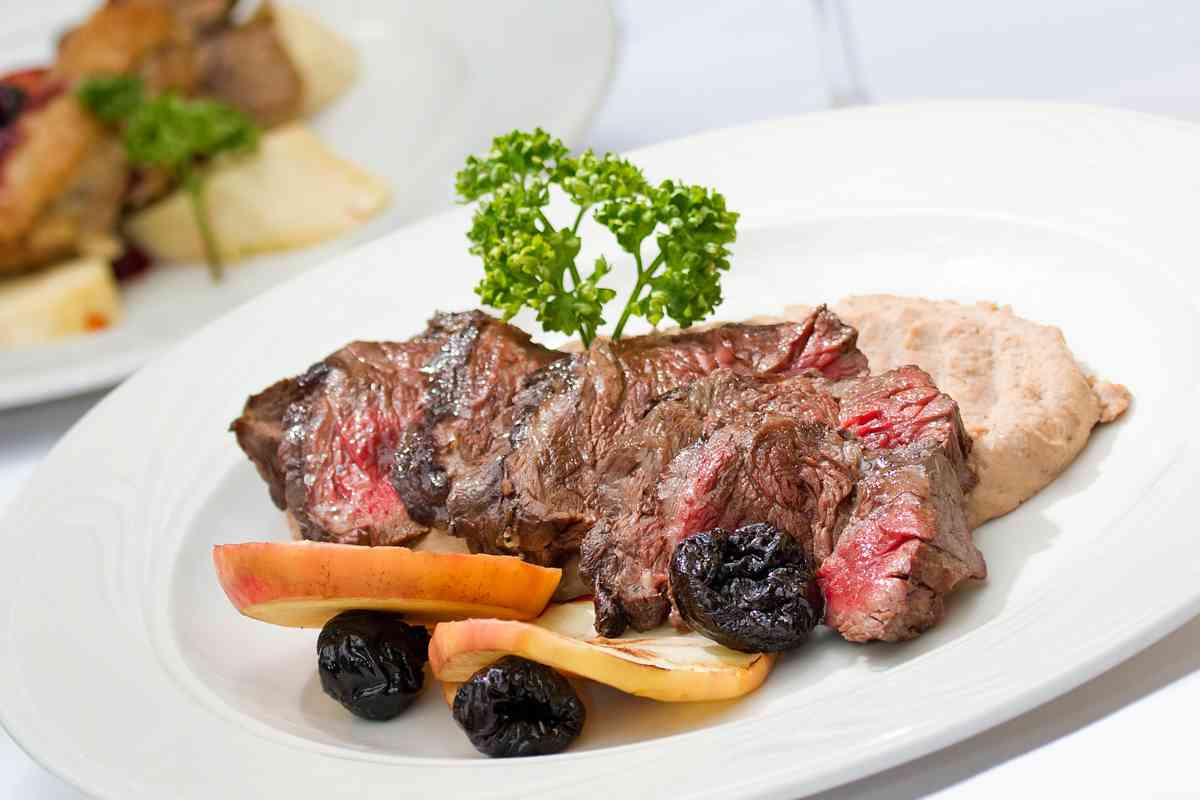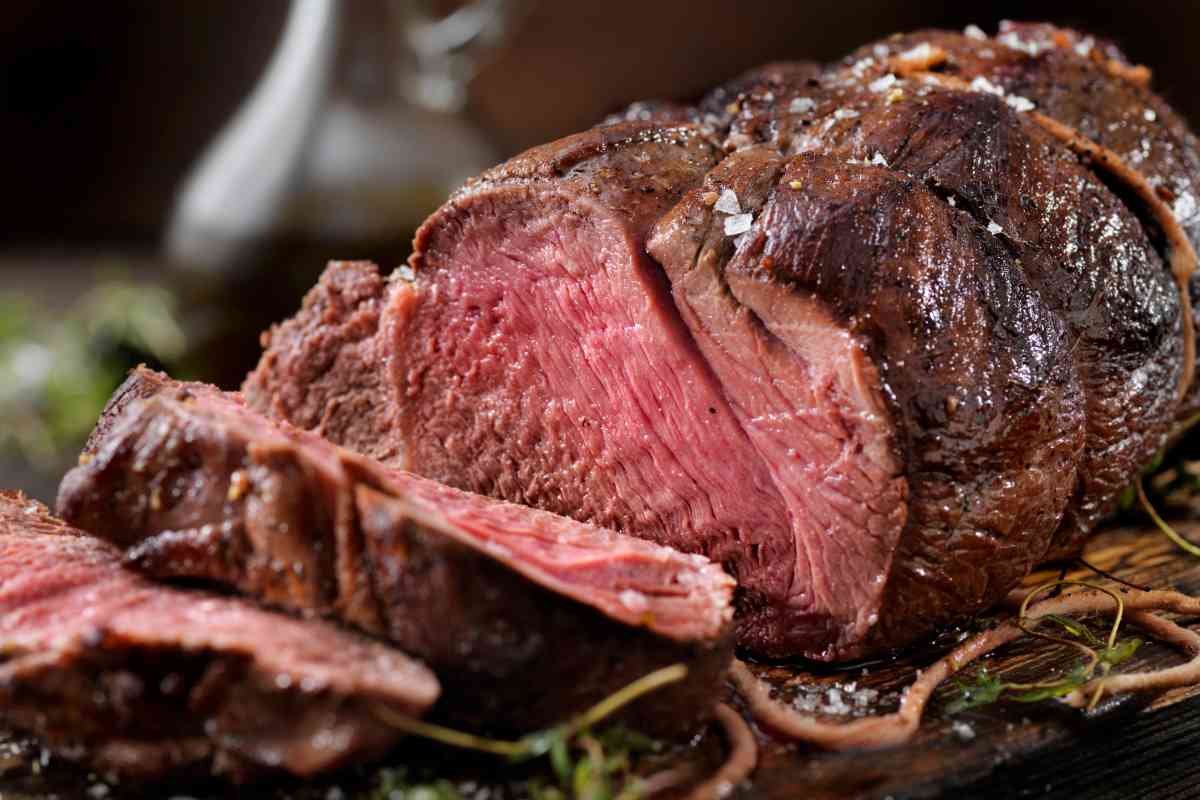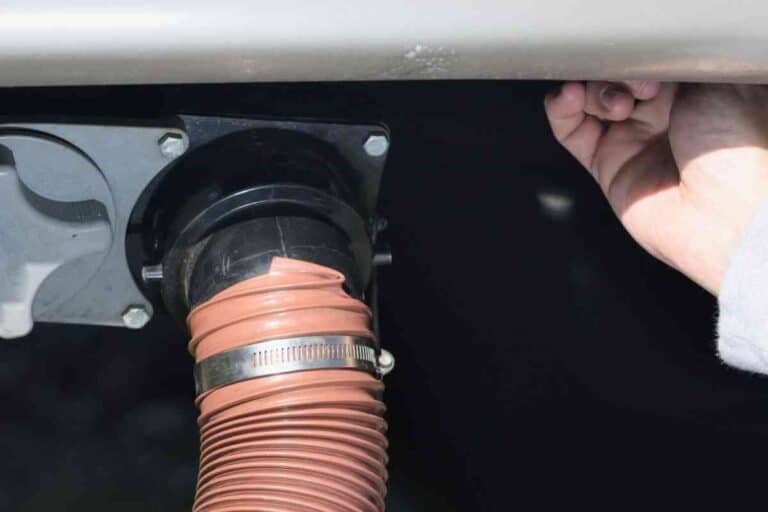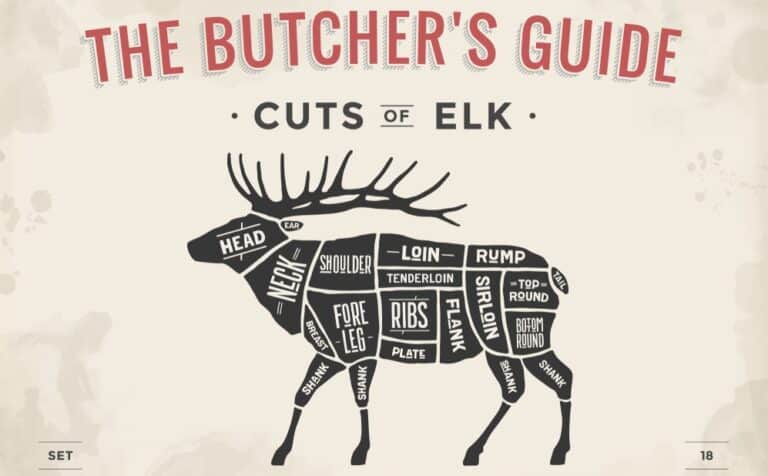6 Mistakes People Make When Cooking Venison (Don’t Waste Your Deer!)
Do you end up with chewy, gamey-tasting, bland and dry venison? In this article, we will break down the 6 common mistakes when cooking venison.

What To Avoid When Cooking Venison
The common mistakes when cooking venison are overcooking tender cuts, undercooking tough cuts, seasoning with too much salt, failing to sear the meat properly, keeping the fat on, and failing to marinate with lemon juice.
Venison is any type of deer meat. It’s a type of red meat which is comparable to beef in various ways. Venison is used around the world in stews, meatloaves, and chilies. When properly prepared, its texture and flavor surpass most types of red meat.
However, you can only enjoy venison’s flavor and texture if you prepare it properly. Unfortunately, most people make the mistake of preparing venison like any other red meat. And they end up with meat that’s not only chewy but lacks the right flavors and textures.
If you’ve ever happened to find yourself in such a situation, then you’ve come to the right place. In this article, I will share some common mistakes that people make when cooking venison. And by avoiding these mistakes, you will end up with juicy, flavorful and better-tasting venison.
Benefits of Venison
When prepared properly, venison’s health benefits surpass those of ordinary red meat. It’s lower in cholesterol and fat while higher in various minerals and vitamins. Let’s take a closer look at some of the benefits of venison.
High-Quality Source of Protein
Venison is a high-quality source of protein. A 100g venison steak contains approximately 24 grams of protein. Therefore, if you are looking to boost your protein intake, then venison is a great choice.
Furthermore, the protein that you will find in venison is considered a complete protein. This means that this protein comes with all the essential amino acids that your body can’t produce by itself.
And the importance of protein in the body can’t be overstated. Protein plays a key role in almost all processes in the body. From growth and repair to supporting your immune system, protein is extremely important in your body.
High in Zinc
Zinc plays an important role when it comes to the growth and development of immune cells. Also, studies have shown that zinc can help to reduce oxidative stress that’s caused by inflammation. Furthermore, zinc can help to prevent various conditions.
Unfortunately, getting enough zinc from your ordinary diet can be a challenge. And this is where venison comes in. Venison is rich in zinc. Therefore, consuming deer meat regularly can help to supply your body with adequate zinc needed to maintain optimal health.

Excellent Source of B Vitamins
Red meat is a great source of B vitamins. And this also happens to be the case with venison. Venison comes packed with a wide range of B vitamins such as vitamins B6 and B12. Besides vitamins B6 and B12, venison is also rich in vitamins B1, B2, B3 and B5.
And these vitamins play a vital role when it comes to the proper functioning of the body. For instance, vitamins B6 and B12 are important for brain health. So, if you have a deficiency, you may end up with depressive-like symptoms.
High in Omega 3
Omega-3 fatty acids are a vital component of cell membranes. They promote the optimal functioning of the cell receptors found in these membranes. Also, these fatty acids play a key role in blood clotting regulation, inflammation prevention as well as the contraction and relaxation of your artery walls.
Furthermore, omega-3 fatty acids can alleviate anxiety and depression, boost eye health, lower symptoms of ADHD in children, fight autoimmune diseases, improve joint and bone health, improve sleep and alleviate menstrual pain, among other benefits.
And while most meats contain omega-3 fatty acids, grain-fed beef tends to have a lower concentration of omega-3 fatty acids compared to animals that mainly feed on pasture. Since deer spend their entire lives grazing on pasture, venison will have a higher concentration of omega-3 fatty acids, compared to the conventional red meat that you will find in most grocery stores.
Also, venison has a better omega-6 to omega-3 ratio, compared to red meat obtained from grain-fed animals. Therefore, venison comes across as healthier meat when you compare it to other red meats.
Mistakes People Make When Cooking Venison
Without a doubt, venison comes with numerous health benefits. And, it can be a great replacement for beef or other types of red meat. But, to enjoy its deliciousness, rich flavors and incredible health benefits, you must prepare it correctly.
In this section, we will take a closer look at some of the mistakes that people make when cooking venison. We will also share tips on how to correct these issues so that you can enjoy venison’s texture, flavor and health benefits.
Overcooking the Meat
When it comes to red meat, most people prefer medium to well-done. However, with venison, you should avoid cooking it until it reaches that well-done level. When you overcook venison, you will end up with gamey and rubbery meat. And as you may expect, the cuts will simply be too tough to chew.
Instead, you should cook it in such a way that it’s brown on the outside while the inside should be slightly pink. Ideally, it should be medium rare. With this cooking approach, you will end up with venison that will be flavorful and moist.
Undercooking Tough Cuts
Tough venison cuts like neck, leg, shanks and rump tend to have plenty of connective tissue or sinew running through them. And for these cuts of venison to be tender and tasty, you should slow-cook them in liquid and give them enough time.
By using this method, you will allow the connective tissue enough time to break down and melt. So, if you are preparing the tougher venison cuts, you should avoid cooking with too much heat or rushing the process.
Not Searing the Meat Properly
Beef comes with fine fat marbling, which enables it to remain juicy and succulent, regardless of how you may cook it. But with venison, the situation is somehow different. Venison lacks this fine fat marbling found in beef.
Consequently, when you are cooking venison, its moisture will escape into the air. And, you may end up with tough cuts. Beef, on the other hand, will leak out moisture and melted fat onto the grill or pan when you are cooking. Therefore, it will still remain moist and juicy.
To prevent this, you should ensure that you sear your venison properly when cooking it. Searing entails cooking the meat’s surface at high temperatures until it forms a browned crust. By searing it, you will trap all the moisture inside, meaning you will end up with juicy and flavor-filled venison.
Not Using Lemon Juice
Another common mistake that people make when cooking venison is failing to use lemon juice. Regardless of the venison part, you are cooking, it’s highly advisable to marinate it in lemon juice before cooking.
Marinating the meat in a marinade that contains lemon juice will help to tenderize the meat. And as venison tenderizes, the juices present in the marinade will seep deep into the meat, thus infusing it with rich, flavors. Also, adding lemon juice to venison will help to reduce the gamey flavor.
Adding Too Much Salt
Some people tend to assume that venison is just like beef or any other steak. To this end, they will use the same seasoning process that they would apply to normal steak. For instance, some people may apply the same amount of salt as they would apply to normal steaks before they place the venison on the pan or grill. And, I’ve personally made this mistake when I was learning how to prepare venison.
The problem is that if you add too much salt to it before cooking it, you will end up with jerky venison, devoid of any moisture or flavors. And, there’s a high chance that you may end up hating venison for the rest of your life, just because of this simple mistake. If you want to season venison before grilling it, you should add salt sparingly to the marinade that you are using.
Keeping the Fat On
When it comes to cooking venison, the main issue that most people experience is ending up with chewy, dry meat. And to solve this problem, some people may opt to keep the fat on when cooking venison.
However, you should avoid keeping the fat on at all costs. Instead, you should get rid of all the fat that may be present in venison. If you keep the fat on, you will end up with gamey-tasting venison.
Key Takeaways
- Venison can be a great replacement for red meat
- You shouldn’t treat venison like normal steaks
- You should avoid overcooking, undercooking and adding too much salt
- You should marinate and sear the meat properly






